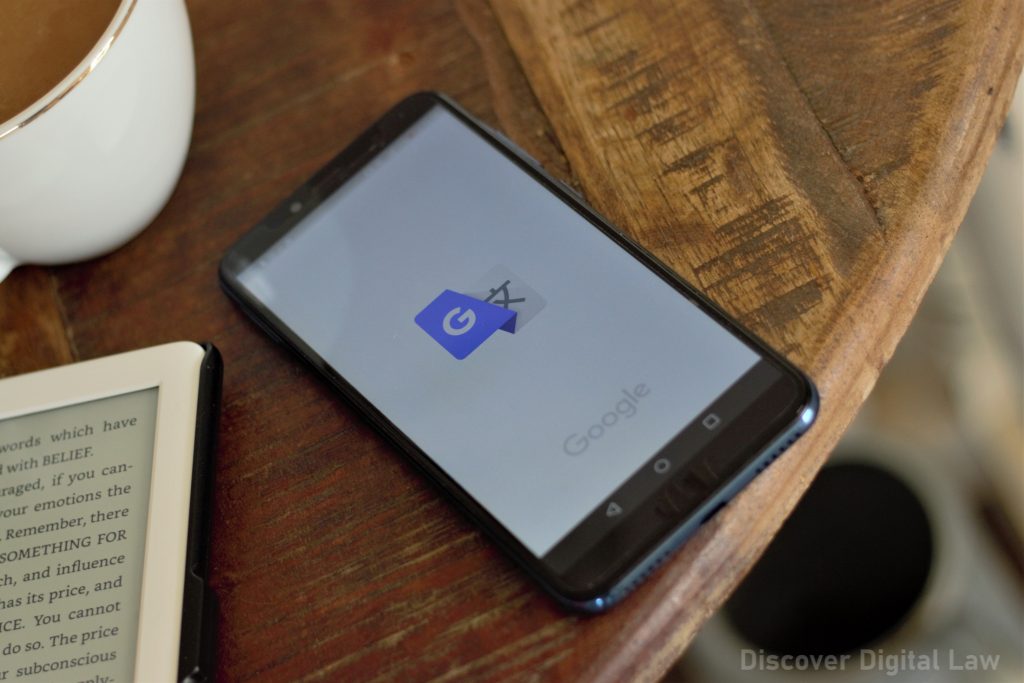Can mechanical translations be copyrighted?
According to the Berne Convention (a convention for the Protection of Literary and Artistic Works signed by 179 contracting parties), the translations are generally protected by copyright. Of course, “without prejudice to the copyright in the original work.” (see art. 2 (3) of the Berne Convention). Therefore, an author of a translation may translate a text and use it only with the appropriate consent of the original author who keeps the rights to his or her work. The question is whether a translation made with special software such as Google Translate or DeepL can be considered an original, protected work, in a way the professional “human” translations are.
The copyright in the EU isn’t generally harmonized, save several specific directives. Based on these directives, for example, art. 1(3) of Directive 91/250, art. 3(1) of Directive 96/9 and art. 6 of Directive 2006/116, it seems the general rule is that the works, in order to be copyrighted, must be original in the sense that they must be author’s own intellectual creation (see for example CJEU Judgment of 16 July 2009, Infopaq international, C-5/08, paragraph 35). Furthermore, CJEU clarified that a work is original where the author could express his creativity in an original manner and achieve a result which is an intellectual creation (see the same Infopaq international decision, paragraph 45). Do, then, the mechanical translations fall within the scope of the definition of originality?
To answer, it’s necessary to understand how the mechanical translations work. In 2016 Google announced it would use a neural machine translation, which is a kind of “deep learning” artificial intelligence technology which predicts the likelihood of a sequence of words. This means the software is able not only to translate the texts word for word, but it also uses an artificial neural network, resembling animal neural networks, to place information in a specific context.
Therefore, it seems reasonable to state that without the use of any human revision or even of original translations of literary works (that could be stored in a Google’s database and which parts could be extracted during the translation), it’s difficult to classify the mechanical translations as the “author’s own intellectual creation”. Consequently, the copyrightability of Google translations under EU laws is highly questionable. This conclusion goes far beyond the translations. The above could have very serious effects also on other AI softwares producing art. Such art wouldn’t be protected and, therefore, could be copied and sold by others. This question should be, therefore, resolved as soon as possible by the appropriate laws.
Contractual limitations
In any case, the above conclusion doesn’t necessarily mean we can use mechanical translations for example on the blogs or in the YouTube videos. Google and other translators are service providers and by using their services we normally agree to their terms and conditions. Therefore, before using such translations otherwise than for our private needs, it’s worth checking what such terms and conditions provide.
For example, according to Google terms and conditions “your content remains yours, which means that you retain any intellectual property rights that you have in your content.” No particular provisions of Google terms and conditions restrict the use of Google translations. However, it’s worth noting that using the automatic translations may have negative effects for example on the SEO of your website (see here).
Furthermore, it’s important to be aware of the fact that the users grant Google a worldwide, non-exclusive, royalty-free license that allows Google to “host, reproduce, distribute, communicate, and use your content […]; publish, publicly perform, or publicly display your content, if you’ve made it visible to others; modify your content, such as reformatting or translating it; sublicense these rights to other users to allow the services to work as designed, such as enabling you to share photos with people you choose; our contractors who’ve signed agreements with us that are consistent with these terms”. Before you smash your computer swearing never to use the Internet again let me add that Google may use such content only “for the limited purpose of: operating and improving the services […]; using content, you’ve shared publicly to promote the services. For example, to promote a Google app, we might quote a review you wrote. Or to promote Google Play, we might show a screenshot of the app you offer in the Play Store; developing new technologies and services for Google consistent with these terms”.
So, as you see, under EU laws Google doesn’t gain any copyrights to its mechanical translations and all rights (and responsibility) regarding both the original version and the translation remain the author’s. On the other hand, when using the services of the mechanical translators, it’s worth checking out their terms and conditions to make sure how you can use the translations and which can be the consequences of such use.

Pingback: Are product images on Amazon protected by copyright? - Discover Digital Law